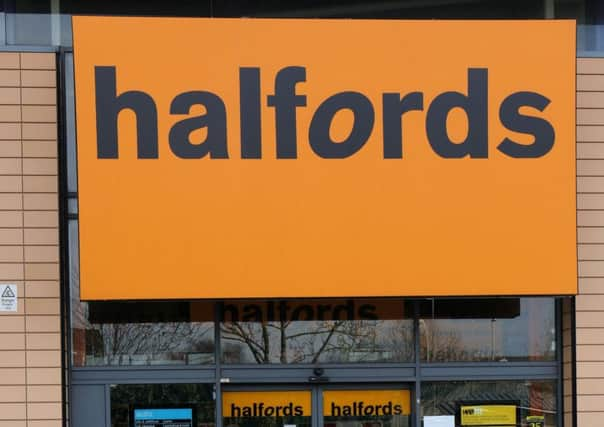Summer sales weaker than expected at Halfords


The retailer added that it expects “political and economic uncertainty” to impact customers making bigger purchases over the rest of the year.
Halfords saw like-for-like group revenues slump by 3.2 per cent for the 20-week period to August 16 after it was weighed down by weak motoring sales during the period.
Advertisement
Hide AdAdvertisement
Hide AdThe company also warned investors that profits would be at the lower end of market expectations, pulling down pre-tax profit forecasts to a range of £50-£55m after previously stating a £50-£59m range.
However, the company said it is has seen “encouraging signs of progress” after introducing a new strategy last year.
Halfords reported growth in its services, online and business-to-business arms, but this was more than offset by heavy declines elsewhere in the business.
The company’s core retail business saw like-for-like sales fall 3.9 per cent after it was weighed down by a 5.9 per cent dive in motoring sales.
Advertisement
Hide AdAdvertisement
Hide AdRetail cycling sales declined “in line with expectations”, falling 1.1 per cent, as it was impacted by worse weather conditions than in the summer of 2018.
The retailer said it will look to improve gross margin and reduce costs, amid the risk the economic uncertainty will continue to hurt sales.
Graham Stapleton, chief executive of Halfords, said: “Despite sales growth in group services, online and business-to-business, we have seen our overall sales impacted by cooler, wetter weather and weaker consumer confidence year-on-year.
“The market has been challenging but we are pleased to have seen increased market share in our core categories.
Advertisement
Hide AdAdvertisement
Hide Ad“In the second half, we believe the economic and political uncertainty will continue to impact big-ticket discretionary spend and, therefore, as in the first half, we will continue to focus on improving gross margins and controlling costs.”